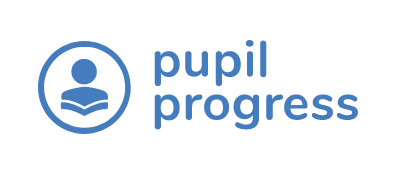Final grades not matching your predictions? Here’s what to do next…

Unpredicted poor grades can feel like you have lost control. This can lead to anxiety, stress and sleepless nights. We’ve been there, and the best way to tackle this is to start asking the right questions and then putting an action plan together. This puts you firmly back into the driving seat. It will create confidence within your teams and enable you to support them in focusing their energy on solutions, rather than blame and unproductive criticism.
Your leadership team will also likely have questions, and may too be feeling guilty/ concerned/ anxious, after all, they are ultimately responsible for providing you with the right support. By going into a meeting having already identified possible issues, causes and most importantly, solutions, you’ll provide reassurance and build trust. This also gives you a chance to shape the conversation to solutions, preventing any defensiveness that may occur.
Find the good stories
Look for your positive messages about individual students, classes or small target groups. Students may have done really well on one or two units and just really struggled with one area in particular. There may be students who are borderline and may need to be remarked; how would the figures look if they go up?
By looking for the positive results and stories, you’ll be better able to narrow down the challenge for next year. Picking out specific memorable good news stories will arm you with positive things for those short stop-and-chats you will inevitably have. It will remind everybody of the positive work you and your team are doing.
Sharing these headlines with your staff and leaders will provide them with the same positive messages they too can share. If the focus is always on the negative points, even if it’s inadvertent, then this will become the view that will be fixed in people’s minds.
Justifications to avoid
Before we look at solutions, I want to challenge three of the most common fall-backs people have when grades are below their predictions:
- the grade boundaries went up
- it was a really hard paper
- the targets were too high
While they may be true statements, these justifications are not particularly productive. It feels safe to give these as reasons, as it is something out of everyone’s control and so avoids blame. But it also shows a lack of understanding on how boundaries are set, avoids taking any personal responsibility and provides no real solutions.
Yes, grade boundaries do change, but generally only by around ±1-3%. There were a few exceptions to this in 2018-19, mostly in MfL and Sciences which involve tiers. For most courses this is the equivalent of 2 or 3 marks, which is not really significant enough. When doing any grade calculations last year, you will have hopefully shifted your grade boundaries up by a few percent to accommodate for this. If you didn’t, then there is action point number 1!
There will always be exam papers with more challenging questions. A quick search shows that this is the case every year, and the use of social media has raised the profile of this even more. If this is the issue you are going to raise, then it just means there is a need to prepare students for this and encourage them to put their hand up in an exam if they are ever unsure. The argument of more challenging papers doesn’t stand up to scrutiny, as if it is a harder paper, students get less marks nationally, and the grade boundaries then go down. Either way, statistically your students are still in the same position to all others that sat that paper.
The main challenge here is difficulties arise when predictions don’t meet outcomes. Even if the targets you may have been using (and slating!) the previous year were unattainably high, they have no relevance to the disparity between the predictions and final results. It may be a relevant discussion to target setting for the next year, but not in explaining the difference to what you thought the students would get.
Review your Assessment Practice
If your predictions were out, then you will need to review your departments assessment practice. In reviewing your assessment practice you will want to ask yourself:
- Do you formally assess all parts of the course?
- Do all your team use the same assessments?
- Is there a consistent approach to marking assessments across the team?
- Do you Moderate key assessments?
- Is data tracking linked to actual grade boundaries? Do you combine the data of all parts of the course to give one course grade rather than unit grades?
- What boundaries to use?
The good news is it is unlikely you will need to rip-up everything and start again, but with a few key changes you can significantly improve the accuracy of your predictions. Getting your assessment strategy right is crucial, as it will help you to be more confident in knowing where your students are at. You can then be sure that all the actions you decide to take are most likely to be the ones that will have the most impact, and therefore save you time in the long run. Most importantly it helps you to look after yourself and your teachers. You can avoid a lot of the anxiety and stress that comes from uncertainty in the lead-up to exams and results day.
Avoid the blame game
We all feel responsible for the success of our students, and it can be a real knock sideways when they don’t do as well as we had hoped. It’s a really important time to set the right tone for the coming year with a strategy that is solution-focused and needs the support of everyone in your team.
If you need to have a difficult conversation with individuals, share the data you have analysed in advance of any conversations. That way they can also see the issue that needs to be addressed and have the time to prepare for any discussions relating to this. Don’t leave it too long before having the conversation, as it could then start to become a source of anxiety.
Make it clear that the focus of the conversation will be:
- What are the questions this data raises?
- What are the possible causes?
- What processes as a department need can be put in place to avoid a repeat?
- How can we work together to avoid this for this next cohort of students?
It’s crucial to always start every conversation and challenge with the understanding that each teacher wants the best for each student. If that is the starting point, then the focus of any review is on issues with the process not the individual. This also means that you can focus on the actions for next year to avoid the same situation.
Preparing for your line management meeting
You will have a meeting to review your results. No matter what your relationship is with your line manager or the head, these will always be very nerve-wracking times if your results are not where you expected them to be. Get yourself well prepared, the sooner the better, as it will put you back in control and help avoid sleepless nights.
Use your data to your advantage. Highlight those positive messages and give specific points where you can make a difference next year will be. Give due praise where it is deserved and be accepting in responsibility of the changes you will need to make this year.
Don’t forget your line manager will also be looking to report both positive steps and the focus for actions up the chain. Even the head will be reporting to governors or trust executives. So give them clear messages about the actions you and your team will be taking. Even better, tell them what you have already done to show you are proactive and keen to tackle the problem.
Don’t forget you will need to be ready to put them into practice so keep your actions realistic and manageable!
Final thoughts
Every teacher and leader will have had a clanger of a set of results in their time. Don’t beat yourself up about it, or let anybody make you feel guilty about it.
Instead use this as an opportunity to energise and motivate the team around you to do better. A clear action plan will put your back in control and will show improvements, if you stick with it and see it through. Making long-lasting changes is a gradual process and will have ups and downs, so try not to wallow or run from the downs. Get a clear plan together and look forward to the celebration when you see the positive results from the changes you have put in place.

Barnaby Grimble
Co-founder
Chief Product Officer

Comments